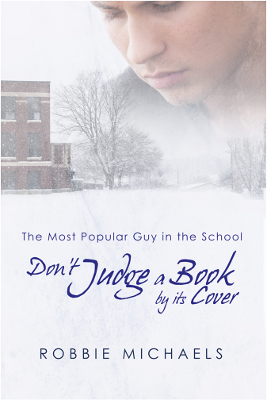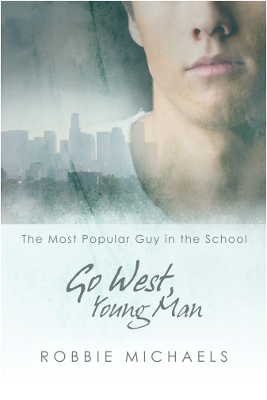A Star is Born (23 page)
Authors: Robbie Michaels

The church could ideally seat four hundred, but I’m told that we had more than five hundred seated in the main sanctuary that day. There were many hundred more in the adjoining rooms. And even more outside. I never got to see the crowds outside since by the time I got out there they had dispersed. By all accounts, my mother’s funeral drew a larger crowd than that town had ever seen or would likely ever see again.
Between the crowds, the cameras, the stars, and the gut-wrenching murder, it was a day of tremendous emotion for many people, especially my dad, me, and Bill. I couldn’t imagine what must be going through Bill’s mind as we sat in the front, waiting for the event to start. The funeral director walked up to him, tapped him on the shoulder, and Bill rose and walked to the open casket at the front of the church. He knelt beside it, bowed his head for a moment, and then rose and walked to the raised pulpit at the front of the church.
Looking out over the assembled, somber crowd, Bill started. “Never in my life did I expect to be standing here before you today on this occasion. I can safely say that I would give everything I have, everything I own, everything I might ever earn, for none of us to have to be here today. We’ve lost someone irreplaceable.
“Some of you called her sister, some called her wife, some called her mom, and some of us called her our guardian angel or friend. Whatever you called her, you all knew Mrs. M. That’s what I called her. She always wanted me to call her by her first name, but I never could bring myself to do that. She’ll always be Mrs. M. to me.
“When I found out I was going to speak here today, the first thought that entered my mind was of the shepherd with one hundred sheep who left his flock of ninety-nine sheep in order to find one sheep that was lost. I’ll not try to kid you—I’m not a religious man. But the minister of this church was kind enough to help me out yesterday as I was getting my thoughts together for what to say. He helped me find the text that I remembered and told me how it was part of a trilogy about redemption.
“The parable from the Gospel of Luke reads as follows:
“Which of you, if you had one hundred sheep, and lost one of them, wouldn’t leave the ninety-nine in the wilderness, and go after the one that was lost, until he found it? When he has found it, he carries it on his shoulders, rejoicing. When he comes home, he calls together his friends and his neighbors, saying to them, ‘Rejoice with me, for I have found my sheep which was lost!’”
“I was that lost sheep.” He pointed at Derrick. “You were that lost sheep. You were the original lost sheep.” Derrick gave a shy smile, hesitant. Bill pointed at a couple of other people who he knew shared the same connection. “You. You. And you. You were all lost sheep.
“A lot of people would go to church once a week, hear those words I read a moment ago, nod, and then afterwards go on about their lives, never giving that parable another thought.” He paused, looking down. “But not Mrs. M. No. She
lived
those words. She took that parable and made it flesh, and it walked among us.
“It didn’t matter if she knew you or you knew her. If you were lost and in need of help, no matter how dark the night, no matter how deep the hole you’d fallen into, she was the good shepherd there to bring you back to safety.
“My father used to beat the crap out of me and my mom.” A simple factual statement that had so much more of an impact than those few words alone could have separately. “We were a mess. We were self-destructing. We weren’t going to all walk out of that house alive. I knew it. My mom knew it. We didn’t talk about it. It just was. And it sucked.”
Bill paused for a moment to pull himself together.
“And one night when the hour was the darkest, when all signs of hope were gone, when we had just about given up—” Bill smiled. “—there was a knock at the door. The good shepherd and her entire family were there and saved us from our own personal hell. Mrs. M. put herself into the line of fire and told my father that she was there to get us out of that toxic environment. She told us that we were creatures of value, that we meant something, that we were important to someone, that someone cared.” Bill paused for a moment to shed a couple of tears that he wasn’t able to keep back.
“The world has lost so much with her death. Mr. M., you’ve lost your life mate, the person you fell in love with more than two decades ago, the person that you had planned to grow old with. I am so sorry for your loss.
“Mark, you’ve lost your mom, the woman who gave you life and a sense of what is right and what is wrong and what to do when you see wrong happening. I am so sorry for your loss.
“To all of you, you know the magnitude of our loss. I want the entire world to know about this incredible woman. She is an inspiration, and she must be acknowledged and remembered and used as a model for others. And so I am pleased to be able to announce that Derrick St. James and I have secured Mr. M’s permission to make a movie about this phenomenal woman.”
There was thunderous applause throughout the church, with echoes reaching us from outside and from other rooms nearby.
“We’ve secured funding, we’ve secured a director, we’ve secured a commitment to go forward with this project. And I am honored to be able to be a part of this effort. She will not be here, so it’s up to those of us who still are here to tell others about her. The way I see it, as simplistic as this may be, is that as long as someone remembers and tells the stories of Mrs. M., she’s still here. As long as someone tells the story of this woman, she will live on. And I will do everything in my power to be sure that that story is told for generation after generation.
“Thank you for listening to me. Go forth and tell the story. Never forget. Never forget. Thank you.”
And Bill stepped down from the pulpit. I wanted to hug him for doing such a mind-blowing job, but I couldn’t because my dad got there first. Before I could even move, he was out of the seat beside me and was grappling Bill in a hug that could have broken a lesser man. They held onto each other and wept, comforting each other.
I needed to hug someone, so I grabbed Derrick and hugged him, and then Moira.
Spontaneously, my dad stepped to the pulpit and said simply, “The next time you feel angry and consider being violent, hug someone instead.” He returned to his seat but hugged me first.
The minister of the church took the pulpit and led the gathered crowd through the more ritualistic parts of the burial service. He led everyone in reciting the twenty-third Psalm and then closed with the traditional committal words in both the old form and the more modern form.
“In the book of Genesis, chapter three, verse nineteen, we find these words: ‘By the sweat of your brow you will eat your food until you return to the ground, since from it you were taken; for dust you are and to dust you will return.’ In other words, ‘earth to earth, ashes to ashes, dust to dust.’ Amen.”
And it was over.

Home
A
FTER
the funeral was over, we shook hands and talked with a countless number of people. I had in-depth conversations with people I didn’t know in the slightest possible way. We spoke to what seemed like an endless supply of reporters, and we got hugs from lots of people. Both Bill and I were pleased that some of our acquaintances from high school—it wasn’t really possible to call them friends anymore—came to the funeral and made a point of waiting around to say hi to us.
That night we were all exhausted. Once again we all trekked the short twenty miles to the motel to sleep. All gathered around the table in the diner—what we had all come to think of as our table—I decided to broach the subject with my father.
“So, are you going back home tomorrow?” I asked him.
“No.” Simple answer.
“When are you going back home?”
“I don’t know.”
“You have to go back at some point.”
“No, I don’t.”
I sat there and stared at him.
“It’s your home. You have to go home at some point.”
“It’s just a house. Your mother made it a home. I don’t know what I’m going to do yet, and I’m not going to rush to make any decisions. My brother told me today to not make any major decisions at a time like this, and that’s exactly how I’m going to handle it—by not making any changes for now.”
“So are you going to stay at the motel?”
“No. I’m going to go away for a little while. My brother from DC has been bugging me to come see him and his family, and now seems like a good time to finally go. I’m driving down there tomorrow when they go back. I’ll spend some time with them and then decide what I want to do next.”
“You have to go back to work, Dad!”
“I know. I’m on an indefinite leave of absence for the moment. And I don’t
need
to go to work ever again. Your mom and I had lots of life insurance on each other, given the things we liked to do, so I’m financially free of all worries for a good many years to come.”
“But you
need
to go to work, Dad. You have to have something to do. You can’t just give up and sit back and do nothing. Work is going to be the only thing that will save you over the next year or so.”
“Mark, I appreciate your concern, but it’s my life, I don’t have all the answers, and I don’t want to talk about it anymore tonight.”
“What do you
want
to do?”
He considered my question for a moment before looking at me and answering, “Go to a bar, have a drink, and toast your mother.”
We all nodded. After our meals were finished, we walked down the street to the closest bar we could find. It didn’t look like much from the outside. From the inside it looked like a small neighborhood bar. It didn’t matter what type of bar it was. The bar was full, so we all hung back while Moira went up and asked for five beers and five tequila shots. She returned with a waitress right behind her carrying the drinks.
We each took a beer and the shot glass. We moved into a circle, clinked the shot glasses, and drank them down in one swallow. And I immediately remembered how much I disliked tequila after one especially intoxicated weekend in Palm Springs. I gave an involuntary shudder and tried to wash away the taste with the beer.
As was inevitable, given the news coverage of the last few days and the fact that we had two of Hollywood’s most recognizable faces in our party, people recognized us. I was immensely pleased when one came up to us, not to meet Derrick or Bill, but to tell us how sorry they were for our loss. Maybe there was hope for humanity after all.
A half hour later we were all back at the motel and tucked into bed for sleep—troubled sleep, but sleep nonetheless. The next day my dad got in his car and drove to Washington, DC to spend time with his brother, while Bill, Derrick, Moira, and I got on an airplane and flew back to LA.
Traveling in the company of two well-recognized Hollywood stars was an experience. Moira and I ran interference as much as possible, taking the aisle seat to block most people from getting to the big guys. While transferring planes in Chicago, there was no way to avoid a certain amount of recognition, even with their usual disguises of ratty clothes, sunglasses, and baseball caps pulled down low across their faces. But Moira was a pit bull, not to be ignored. She ran interference like a linebacker. She kept the guys from unwanted interruptions. I was so proud of her. And it was then, at that moment in O’Hare airport, that it hit me. I had lost my mother, but I was more fortunate than most because I had another waiting in the wings to step into the role and watch over me.
We all had a long ways to go, not just geographically. We had mending of relationships to continue. We had roles to work out. We had responsibilities to always rebalance. We had healing to do. But we could do it. We would do it. We had no choice. Life goes on. There were things to do, and we had stories to tell.

http://www.harmonyinkpress.com

